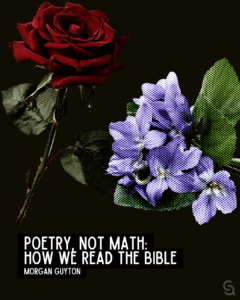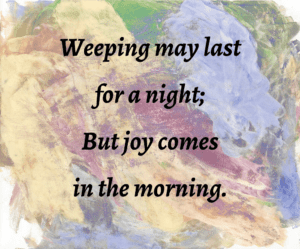 The light shines in the darkness, and the darkness did not seize it. ~ John 1:5
The light shines in the darkness, and the darkness did not seize it. ~ John 1:5
The wind blows where it chooses, and you hear the sound of it, but you do not know where it comes from or where it goes. ~ John 3:8
In math, the sentiment goes, there’s only one right answer. If you study hard for your test and memorize all the formulas and equations, you will get an A. When I began the University of Virginia in the School of Engineering, I lived in a world where truth was black and white. Though I didn’t notice at the time, the vast majority of students in my InterVarsity Christian Fellowship chapter were also engineers. We referred to the College of Arts and Sciences as the “soft sciences.”
I was getting good grades in engineering, but I was bored out of my mind. A moment of truth came in computer architecture class when our old professor’s monotone voice and the hum of the overhead projector inspired me to spend the semester writing an apocalyptic dystopian epic poem instead of taking notes. When it came time for the exam, I would have been completely screwed if it hadn’t been for my genius housemate, who loaned me his notes. So I changed my major to English and entered into the agony of reading things I enjoyed, while never getting higher than a B+ on the papers I wrote about them. One of my professors said she gave Bs to people who followed all the directions flawlessly and As to people who dazzled her in a completely unexpected way.
Despite starting off college as an engineer, I have always been a poet.
Despite starting off college as an engineer, I have always been a poet. My poetry began in middle school as a means of talking back to my bullies. I’ve never been very quick on my feet, but I found that if I stewed long enough after being insulted, I could come up with a brilliant comeback that would restore my dignity, even if nobody else ever heard it. Poetry has a unique truth about it. Arguments that you might lose in logic can be won through poetry. It does justice to realities that cannot be captured by scientific explanation. It gets under your skin in a way that strictly rational communication cannot. Most importantly, good poetry is never closed to interpretation. No one can say the final word on a good poem, because its meaning defies a conclusive explanation.
In contrast to poetry, you’re not supposed to spend hours waxing eloquent about a math problem (unless its elegance has become poetic). Once you’ve conquered one type of math problem, you move on to the next. In math, you stack bricks of knowledge on top of each other, as in the game of Tetris. Once you’ve filled up a level of knowledge like pre-algebra, that level disappears into the ground and algebra comes down to replace it, followed by geometry, trigonometry, calculus, differential equations, and so forth. There is no reason to go back and rummage through algebra when you’re studying calculus because algebra is already integrated into calculus. Math is a type of knowledge that you can conquer, while poetry is a type of knowledge that conquers you.
Math is a type of knowledge that you can conquer, while poetry is a type of knowledge that conquers you.
Some people read the Bible like a math problem, and others read it like poetry. The Bible is an essential tool for instilling beauty into our hearts, but so many Christians turn it into a weapon for winning arguments with other people. I believe that treating the Bible like poetry to be savored, instead of math to be solved, can help to save us from its toxic misuse.
Morgan Guyton is the director of NOLA Wesley United Methodist Campus Center. He is also a United Methodist pastor, blogger, and author of How Jesus Saves the World from Us: 12 Antidotes to Toxic Christianity (Westminster John Knox Press, 2016) from which this article was excerpted by kind permission of the publisher.



One Response
“Math is a type of knowledge that you can conquer, while poetry is a type of knowledge that conquers you.”
You said it, man. I wrote a whole essay trying to express this and I’m not sure that I got it across, but you got it into a sentence.
Poets!